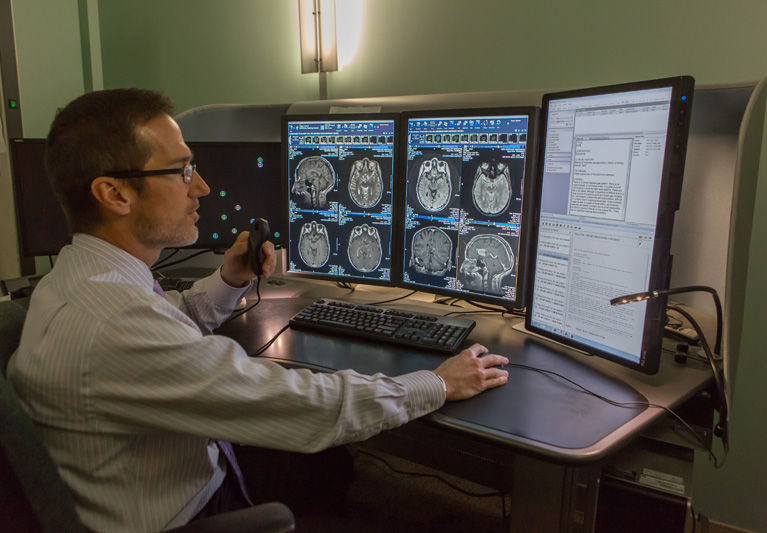
It’s widely accepted there is a connection between physical and mental fitness, and neuroimaging studies – in which the activity of different parts of the brain can be seen – have long borne this out. Now for the first time, a study has shown a direct relationship between brain activity, brain function and physical fitness.
Dr. George Puskar, a neuroradiologist associated with the Indian River Medical Center, explains that a neuroimaging technique called a functional MRI was used in the study. He says: “In most brain scans, the patient just lies there and pictures of their brain are taken. Functional MRIs are different. The patient is asked to perform a certain task – tapping their finger, wiggling their toe, or doing the Stroop test – as the scan is being taken. Whatever action they’re asked to take increases neuron activity in a certain area of the brain and consequently increases blood flow, which the functional MRI can measure.”
The study is from the University of Tsukuba in Japan; its results were published in a recent volume of the journal NeuroImage. It involved 60 men, aged 64 to 75, who underwent an exercise test to measure their aerobic fitness. As expected, their fitness levels varied widely.
The men then underwent what is called the “Stroop” test; it’s a test that sounds simpler than it is. It uses words that designate a color (like the word RED), but are written in letters of a different color. Participants are asked to name the color of the letters rather than read the word itself. When the color of the letters does not match the word, it takes the brain longer to react. The study was able to measure this reaction time.
Researchers measured activity in the prefrontal cortex (PFC) region of the mens’ brains. The PFC is located in the very front of the brain, just behind the forehead. It’s in charge of abstract thinking and thought analysis; it’s also responsible for taking in data through the body’s senses and deciding on actions. As such, it is the part of the brain most strongly associated with human qualities like consciousness, general intelligence and personality.
The study found that the test subjects who were more physically fit performed better mentally than the less fit men, and for the first time the imaging unveiled a reason – these better performers used their PFC in the way that younger people do. In our youth, we mainly use the left side of the PFC; as we age, we tend to use the right side. The physically fit participants used the left side of their PFCs; the side associated with youth and mental fitness.
Since choosing which side of the PFC to use is not a conscious decision, why and how did this happen? The study leader, Professor Hideaki Soya, says “One possible explanation suggested by the research is that the volume and integrity of the white matter in the part of brain that links the two sides of the PFC declines with age. There is some evidence to support the theory that fitter adults are able to better maintain this white matter than less fit adults, but further study is needed to confirm this theory.”
Vero’s Dr. Puskar agrees that more study is needed to bear out, or refute, Professor Soya’s hypothesis. But, through analyzing MRI and CT scans, he does regularly see the effect aging has on the brain. He says “it’s part of the normal aging process for the brain to atrophy – to actually shrink. Little spots will appear in the white matter of the brain where blood vessels are wearing out.”
Dr. Puskar says he sometimes encounters a scan of an elderly person’s brain that looks like it belongs to a much younger person. “I expect the brain of an 80-year-old to look a certain way, and sometimes it looks more like the brain of a 50-year-old,” he says. As he does not know the specific situation of the patient, Dr. Puskar can’t make a direct correlation between the appearance of the brain and the level of their physical activity, but says “it’s pretty complex, but in general people who are physically active stay more mentally active.”
Dr. Puskar is board-certified by the American Board of Radiology, Diagnostic Radiology with Certification of Added Qualification (CAQ) in Neuroradiology. His practice is part of Vero Radiology Associates, 3725 11th Circle, in Vero Beach. The office phone is 772-562-0163.



